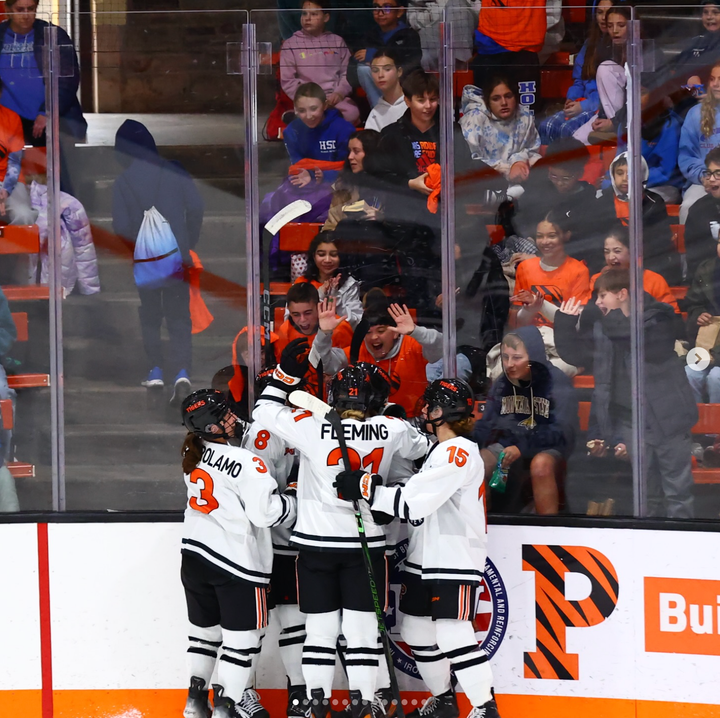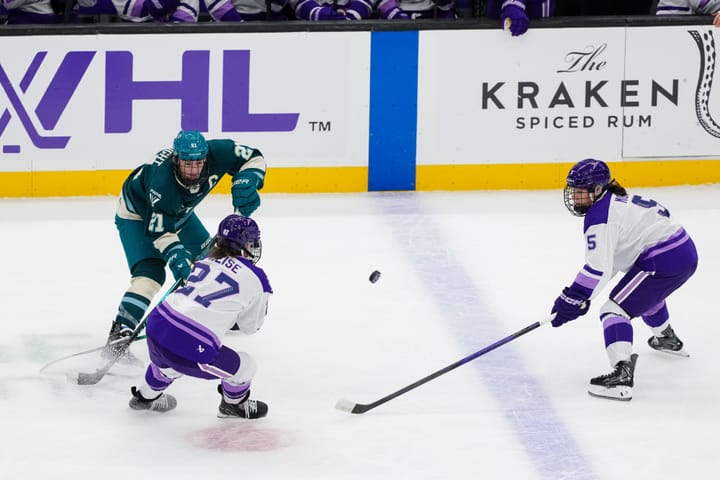2022 Olympics Recap: ROC
No medals this year for the ROC but they take forward strong young talent
The ROC finished with a record of 1-4-0. They had 8 goals for and 22 against over the five-game stretch. The team won’t be thrilled with the ultimate result. As medal hopefuls, they were looking for at least a semi-finals appearance.
The dominant story for the ROC was, unfortunately, COVID-19. The team faced player shortages from positive tests right from the start. Nearly a dozen players were isolated throughout the tournament due to positive or inconclusive tests. This became a dominant story during their game with Canada when the medical officer for the ROC failed to declare their test results to Team Canada. In the name of safety, the two sides agreed to wear masks for their match-up, which proved apt as additional Russian players tested positive the following day. It is foolish to speculate - you can only play games with the players on the ice - but I’m sure members of this team will always wonder what would have happened if they hadn’t run into the health issues they did.
In a more positive light, these games mark the last Olympics where the team from Russia won’t refer to themselves as “Russia.” After state-sanctioned doping came to light in 2016, Russia was suspended from the Olympic games. An appeal by athletes saw the ban partially overturned, allowing athletes with clean drug tests to participate as “Olympic Athletes from Russia” at the 2018 games. Russia was given a four-year ban causing athletes to compete under the “Russian Olympic Committee.” After an appeal, that ban was reduced to two years and will conclude at the end of this year. Provided no further changes, we’ll see them in Russian Uniforms under the tricolour in 2023.
How they finished
The ROC were eliminated in the quarterfinals, the only group A team to do so. They finish the tournament in 5th as the highest-seed team eliminated in the first round.
The ROC emerged victorious only against the Swiss seeding them side by side in the preliminary round. The ROC and Swiss played in the quarterfinals, where Switzerland was victorious. It was close through two periods, but the Swiss pulled away and ended the ROC’s Olympic dreams with high pressure and two late goals in the third period.
What went right
Goaltending Success
In my eyes, the ROC’s goaltending futures are the brightest star of this team. The ROC coaches are notoriously unforgiving and unloyal to any goaltender. That was on display this month as every goalie had the opportunity to start with no pattern or consistency. There was no clear number one, and once pulled, favour was given quickly to other goalies. The young goalies played well and will prove valuable for this team in Olympic games to come.
Veteran Mariya Sorokina carried most of the duties in the Russian net, but both young goaltenders Valeria Merkusheva and Darya Gredzen saw time.
Gredzen, the 17-year-old who already has three seasons of club experience in Russia, played 40 minutes in this tournament against the two best teams. She entered against the United States in relief of Sorokina and made 19 straight saves to close out the game. With that performance, she was chosen to start against the Canadians. She allowed four goals on 34 shots before being relieved. Through the two-half games, she had a .925 save percentage.
Merkusheva came in halfway through the Finland game in relief of Sorokina. She allowed a goal just 30 seconds after entering the crease but stopped the next 11 shots to hold Finland to just five goals on the night. Merkusheva started in the ROC’s quarterfinal with Switzerland and played the whole game. At just 22 years old, she has demonstrated skill with a .915 and the poise to play important games. She and Gredzen are two solid options for the future of Russian goaltending.
What went wrong
Offensive issues
To be honest, not a whole lot went right for the team. Their offence showed promise at times, but it came in limited stints. Seven of the ROC’s eight goals came against Switzerland. In their other games against more defensively sound teams, they failed to produce threatening goal-scoring opportunities. The ROC’s holes were exploited during special teams’ situations. The ROC drew just 14 penalties, the second-fewest of any team. On those 14 opportunities, they ultimately failed to convert. At over 20 minutes on the powerplay, they failed to score once. The ROC to the third most penalties: 24 in five games. Opposing teams were able to convert 34% of the time, a number much too high considering their inability to score. The special team’s issues were demonstrative of the ROC’s inability to keep up with the dominance of some group A teams.
Notable players
Polina Bolgareva GP:3 G:3 A:0
Bolgareva was the ROCs leading goal scorer with three in as many games. She was one of many players to have to spend time in isolation for COVID-19 and, as a result, missed the final two games. The Olympics were Bolgareva’s first games with the Russian senior team, and she has demonstrated her value and offensive talent. At just 23 years old, the strong forward will return to this team, ready to compete at the next world championship.
Alexandra Vafina GP:5 G:0 A:3
After not competing at the 2018 games, Vafina returned in 2022 for her third Olympic games. She led the team in assists and provided valuable experience on the bench for the team. At 31, this was likely her last Olympics. But she’ll return to the ZHhL and likely the world championship roster bringing her leadership with her.
Maria Sorokina GP:4 GA: 13 S% .877
I know I said there was no clear starting goaltender, but if there was one, it was Mariya Sorokina. She was in the net for the ROC’s opening game against Switzerland, their only win. She was pulled against the USA, came in as the relief during the Canada game, then started against Finland and pulled again. The inconsistency of the in and out can be challenging, but Sorokina was steady in the face of adversity, facing some of the ROC’s most challenging opponents. She was challenged with 37.8 SA60 and provided the ROC with much-needed stability.





Comments ()